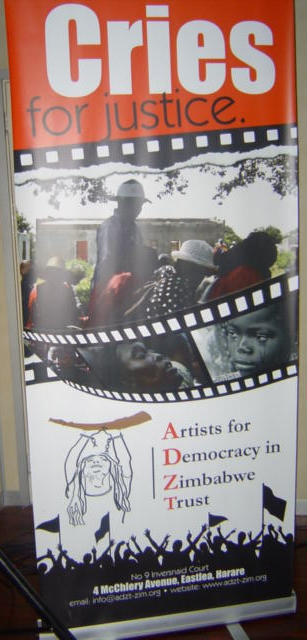 As election fever gathers momentum in Zimbabwe some sections of the population are quickly drawn back to memories of 2008 election thuggery. Violence, which broke out in the 2008 during the presidential elections, left many families displaced and communities turning on each other. The most affected people were those who showed political allegiance to Prime Minister Morgan Tsvangirai’s Movement for Democratic Change (MDC). Violence, destruction of property as well as the displacement of people unleashed under Operation Mavhoterapapi (how did you vote) left many people vulnerable and living in fear of victimization from local leadership especially in the rural communities. Local leadership in rural communities played a major role in coercing people to vote for ZANU PF in 2008 election or they risked losing their land.
As election fever gathers momentum in Zimbabwe some sections of the population are quickly drawn back to memories of 2008 election thuggery. Violence, which broke out in the 2008 during the presidential elections, left many families displaced and communities turning on each other. The most affected people were those who showed political allegiance to Prime Minister Morgan Tsvangirai’s Movement for Democratic Change (MDC). Violence, destruction of property as well as the displacement of people unleashed under Operation Mavhoterapapi (how did you vote) left many people vulnerable and living in fear of victimization from local leadership especially in the rural communities. Local leadership in rural communities played a major role in coercing people to vote for ZANU PF in 2008 election or they risked losing their land.
Since the 2008 civil society has been working with local communities to come up with initiatives that promote reconciliation and national healing in areas where victims of political violence are still seeking redress and trying to overcome the horrendous acts. In an effort to use art as a tool in the engagement of communities in promoting human rights a local civic organization, Artists for Democracy in Zimbabwe Trust (ADZT), has been working in rural Zimbabwe to get peoples views on elections.
At a function graced by the Deputy Minister of Justice, Legal and Parliamentary Affairs Senator Obert Gutu, Artists for Democracy in Zimbabwe Trust launched the Cries for Justice documentary. The documentary which is a reflection of the people of Zimbabwe’s quest for justice is based on narration from victims of the 2008 election violence and is part of ADZT’s work in the area of human rights.
In her speech, ADZT board member, Mrs Gladys Hlatshwayo reiterated that the documentary alone cannot change Zimbabwe’s situation but can contribute to making Zimbabwe a better place to live in.
Speaking at the launch, Deputy Minister Obert Gutu highlighted that art has been used in Zimbabwe to criticize the government and speak on behalf of the voiceless and many artists have been blacklisted whilst others have gone into exile. Commenting on the progress of the Zimbabwe Human Rights Commission Bill, the Minister told the gathering that the Bill would help to empower the Human Rights Commission to look at all transitional justice issues in Zimbabwe.










